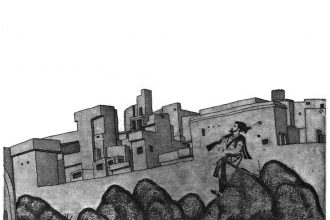It was to him that I had promised to send the book. I telephoned Foyles. They did have it in stock. Price: two pounds. I placed the order and instructed them to send it directly to the monk in Sri Lanka. This done, I crossed his name off my checklist. I felt a sense of relief slowly coming over me—I couldn’t have wanted it more.
A little while later Faiq Ali telephoned from Manchester. He wanted to know about his relatives whom I had met in Karachi. It was strange, wasn’t it, that before embarking on my voyage to the East it was I who had asked him, “Well, aren’t you going to give me the addresses of all those first and second cousins you keep telling me about all the time?†and now it was he who was so impatient to find out from me about those same “first†and “second†cousins: “What kind of people are they? Did they treat you well?†So on and so forth, as if Naima and her relatives were in fact mine, not his.
The only reason I had asked Faiq for addresses was so I could see first-hand how people lived in Pakistan, what sort of problems they had, what kind of hopes and dreams they cherished. One rarely gets an accurate idea of a country and its people by putting up in hotels, or reaching out to them through tourist guides and travel books.
As I waited I could hear faint snatches of some Pakistani music playing in his office and two men talking in one of the regional languages.
When I picked up the phone again I heard the voice of a frightened female at the other end talking in barely audible tones. This was Naima who, I sensed, was quite embarrassed talking to a perfect stranger like myself in the inhibiting presence of her boss, scared that her voice might ruin the decor of his room. I guessed from her voice that she must have been around twenty years old.
“What do you want?†she asked in a whisper.
The rest was more or less a monologue. Had it not been for her faint “yesâ€es that echoed dimly through the receiver from time to time, I would have thought the line had been disconnected, all the more so as the sound of Pakistani music had meanwhile died out and the other human voices, too, had stopped.
As I talked to her I couldn’t resist imagining a frightfully pretty girl at the other end—all alone, skewered by the lustful stares of the men in the room, trying her best to crawl into the receiver to avoid the piercing intensity of those eyes but did not know how. Even her “yesâ€es were no longer audible to me.




